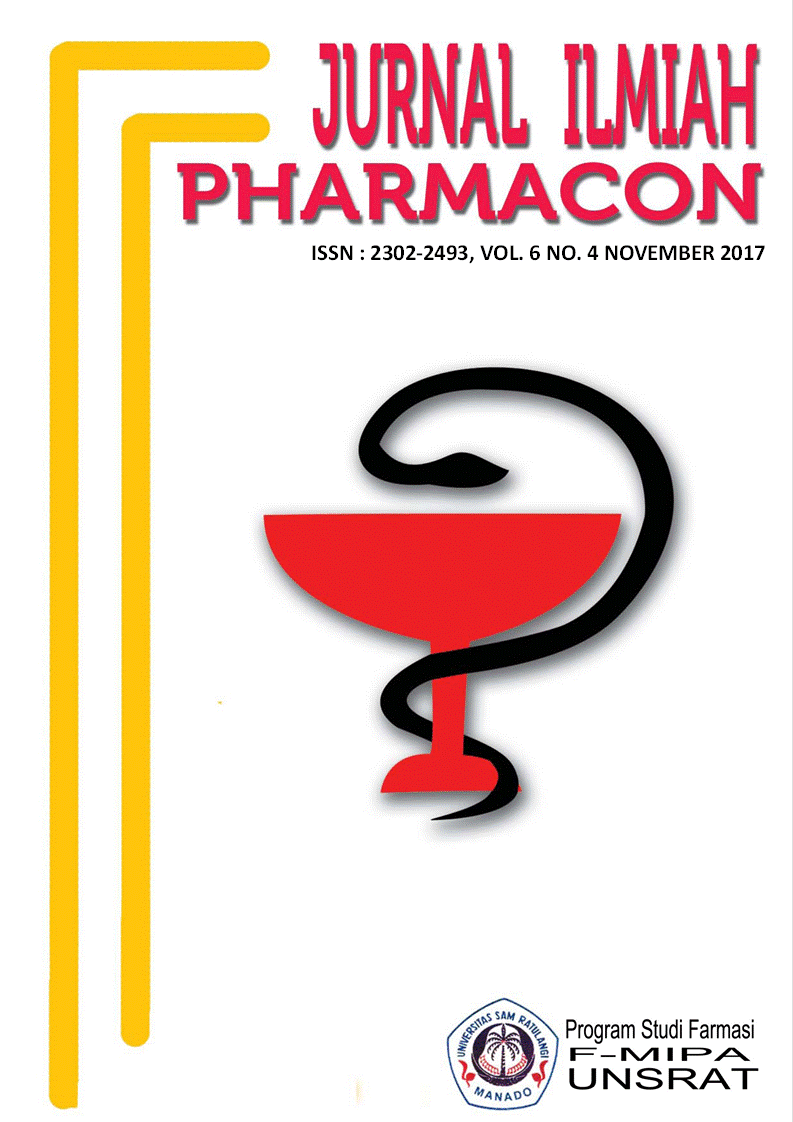UJI AKTIVITAS ANTI KANKER PAYUDARA EKSTRAK DAUN PINANG YAKI ( Areca vestiaria Giseke.) TERHADAP SEL KANKER PAYUDARA T47D
DOI:
https://doi.org/10.35799/pha.6.2017.17975Abstract
UJI AKTIVITAS ANTI KANKER PAYUDARA EKSTRAK DAUN PINANG YAKI ( Areca vestiaria Giseke.) TERHADAP SEL KANKER PAYUDARA T47D
Â
Adithya Yudistira1)
1)Program studi farmasi FMIPA UNSRAT Manado, 95115
Â
ABSTRACT
Â
              This study aims to find out how the value of IC50 from plant extract to breast cancer cells T47D. This research is experimental laboratory by using maserasi extraction technique and activity test to breast cancer cell from yaki pinang extract. The results obtained are: yaki pinang extract has a result as a moderate anticancer because it has only 290.68 μg / mL result. Keywords: Yaki betel nut, anti-cancer plant, breast cancer cell T47DÂ
Â
ABSTRAK
Â
Penelitian ini bertujuan mengetahui berapa nilai IC50 dari ekstrak tumbuhan tersebut terhadap sel kanker payudara T47D. Penelitian ini bersifat eksperimental laboratorium dengan menggunakan teknik ekstraksi maserasi dan uji aktivitas terhadap sel kanker payudara dari ekstrak daun pinang yaki. Hasil yang diperoleh yaitu : ekstrak daun pinang yaki memiliki hasil sebagai antikanker sedang karena hanya mempunyai hasil 290,68 µg/mL.
Â
Kata kunci : Daun pinang yaki, tumbuhan anti kanker, sel kanker payudara T47D
Â
Â
Â
Â
Â
Â
Â
Â
Â
Â
Â
Â
Downloads
Published
How to Cite
Issue
Section
License
Authors who publish with this journal agree to the following terms:
- Authors retain copyright and grant the journal right of first publication with the work simultaneously licensed under a Creative Commons Attribution-NonCommercial 4.0 International License that allows others to share the work with an acknowledgement of the work's authorship and initial publication in this journal.
- Authors are permitted and encouraged to post their work online (e.g., in institutional repositories or on their website) prior to and during the submission process, as it can lead to productive exchanges, as well as earlier and greater citation of published work (See The Effect of Open Access)










